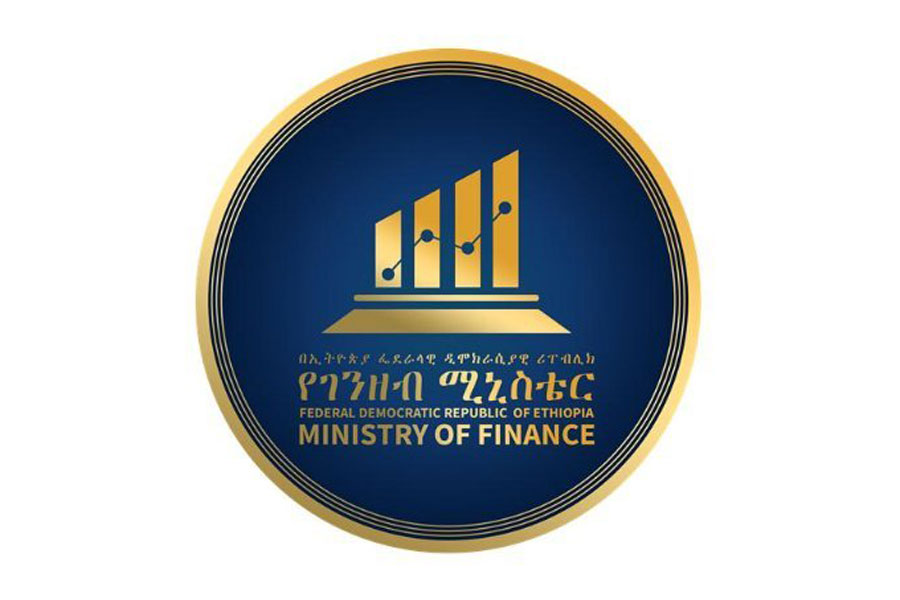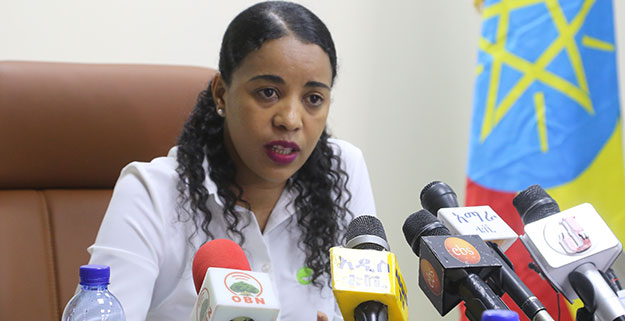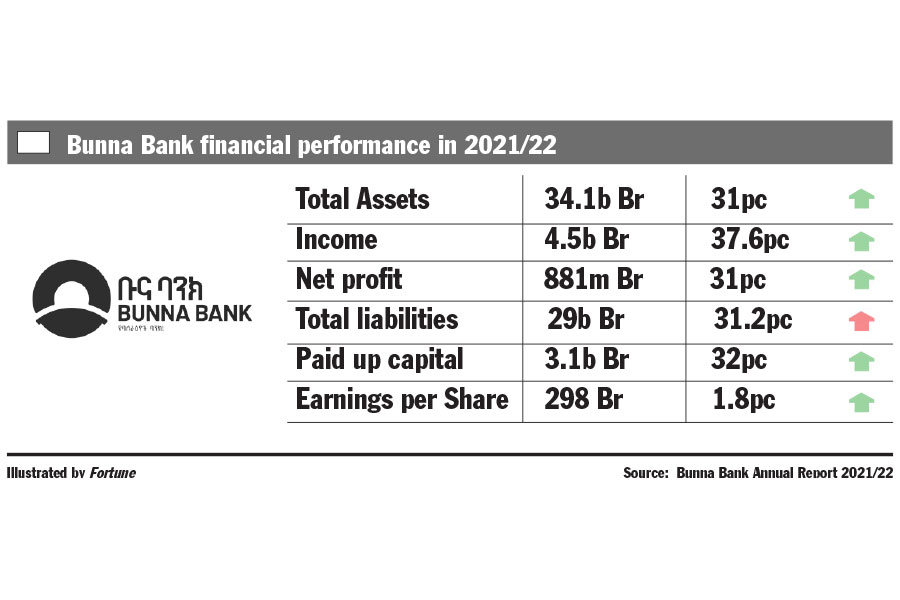
Fortune News | Jan 05,2019
Berhanu Regassa, 40, an employee of Awash Bank has been a loyal customer of the Legehar branch of digital service provider Lehulu, where he has been paying his monthly utility bills since the firm opened in 2013.
On July 4, 2019, he was at Lehulu to pay his bill. In fact, he had arrived before many of the other customers, but he still had to stand and wait in the midday sun for nearly an hour.
He travels from Lebu, on the outskirts of the capital where he lives and works, to the centre of the city to pay his bills.
The Legehar branch has 10 windows attended by clerks for utility payments and two desks assigned for traffic fines.
The recent experience of customers has been one of annoyance, frustration and standing in long queues in inclement weather trying to pay their bills.
They have to make multiple trips to the centre, and once they make it inside, they are often told that the bill cannot be processed, because the institutions have not issued it.
“I liked this place, because the service was fast enough that I never had to wait for more than half an hour,” Berhanu said, “but these days, especially in the last two months, the waiting time is more than an hour.”
Fortunewas at the Legehar branch on the Thursday when Berhanu was trying to make a payment along with hundreds of other people waiting in line.
Abay Gebreghiorgis, in his late sixties and working as a liaison officer at Petram Plc, was also at the payment office on his fourth attempt to pay a single bill.
The number of the customers at this branch started to grow, especially after the closure of a Lehulu branch at Mexico for the construction of the Ethiopian Electric Power headquarters building.
People line up to pay their monthly utility bills at one of Lehulu’s branches around Legehar. The customers have to line up for a long time and come repeatedly due to the delayed bills caused by the transfer of data from the utilities to the payment database.
Kifya, an IT company established in 2010 with over 1,000 employees, launched Lehulu in 2013 as a public-private partnership between itself and Ethio telecom, Ethiopian Electric Power, Addis Abeba Water & Sewerage Authority and the then Ministry of Communications & Information Technology for the specific purpose of facilitating utility bill payments.
Operating under a three-and-a-half-year contract, the arrangement enabled clients to pay their electricity, water and telephone bills, as well as traffic penalties, in 40 branches - four each in Bahir Dar and Meqelle, and 32 branches in Addis Abeba. In the agreement, Kifya has to serve 1.4 million customers and can charge 2.56 Br for every transaction. Serving 950,000 customers, it was unable to recover its capital expenditure, according to Ahmed Mohammed, general manager for government e-services at Kifya Financial Technologies.
Lately, customers are unable to pay their electric and water bills at Lehulu branches offices, since the utility companies are not uploading the data to Lehulu computers on time, according to Qerealem Abeje, head of the Kifya Branch near the Post Office. Regularly, data for electricity bills have been uploaded to Lehulu computers every four days, while data for telephone and water bills are issued once a month.
“Disruption of this system has recently caused long delays and inconveniences for clients,” she said. “The transfer of data from the institutions to the new system causes the lag.”
The branch operates with four cashiers, as the fifth attendant apparently left the company for another job, afraid of being laid off when the office terminates its services.
On August 4, 2019, Lehulu will fully handover the project to government, which is planning to divert all utility payments and traffic fines to a new electronic platform launched by Commercial Bank of Ethiopia, and the institutions have entered into service agreements with CBE.
The payment options provided to each institution depend on the agreement, according to Belihu Takele, director of corporate communications at CBE.
The agreement signed with EEU is a direct debit option at the moment, while with the Addis Abeba Water & Sewerage Authority, the options are window-based, direct debit and CBE Birr. With a direct debit option, the customer must have an account at CBE.
Recently, an agreement was signed between CBE and the City’s Traffic Management Agency to launch the traffic penalty payment system using CBE Birr and window services at the Bank’s branches. The traffic penalty payment service was already provided by 32 centres of Lehulu and 10 district offices of the city.
“The program was designed to modernise traffic penalty payment to a paperless system,” said Dereje Fufa, vice president of CBE in charge of banking service.
According to the agreement, CBE will charge the Agency 3.84 Br for over the counter transactions at the window services in any of the 300 branches of the Bank.
EEU has already integrated its clients’ data from its Enterprise Resource Planning database system, which enables EEU to collect, store and manage information from many business activities, to the CBE platform.
EEU has also arranged 33 paying centres in the four corners of the city for low power electricity users, while the medium and high power users will pay using their accounts at CBE, according to Melaku Taye, corporate communications director at EEU.
The service with the high power users is mandatory, but individuals can also use the Bank for settling their bills if they have already opened a savings account at CBE. Both users have to sign agreements with the Bank before they start using the services.
EEU has 50,000 high power users, around three million low power or domestic users, and around 500,000 prepaid card users.
Addis Abeba Water & Sewerage Authority, which has around 550,000 customers, has arranged four types of payment options: CBE branch window service, debit service, mobile banking service using CBE Birr and an internet banking option.
There is a two Birr service charge paid by clients using CBE window services, according to Nigus Desalegn, acting head of communications affairs at the Authority.
Acting separately from other institutions, Ethio telecom has made agreements with private banks to provide the payment system.
Ethio telecom has agreed with CBE to use electronic billing systems such as CBE Birr or to use agent services like Yimulu and using Unstructured Supplementary Service Data (USSD) code for balance top-ups. USSD codes are programmed in the SIM cards or in the cell phones to make it easier to perform certain actions.
For enterprise customers, they have to use the direct debit options paying their bills from their accounts at CBE and the other 16 private banks in the city.
Ethio telecom has arranged another payment option using franchised and Ethio telecom shops all over the country.
In this case, Ethio telecom has opened 75 franchise centres, 50 shops and 35 enterprise corners for the time being, according to Cherer Aklilu, executive director at Ethio telecom.
“For the new budget year, the corporation plans to open direct window services at the banks, as well as mobile and internet banking methods,” Cherer said.
Even though the other utility service providers work with CBE exclusively, Ethio telecom works with all private banks.
“The service has started at the main offices of the private banks,” said Cherer, who adds that Lehulu processes 348,343 transactions monthly including in Bahir Dar and Meqelle. Some of the private banks also hope to handle these payments and gain a share of the pie.
Christian Kassa, business development director at Abay Bank, hopes that they may start in the future after studying the gap between demand and supply of services.
Habib Mohammed, an expert on the banking sector, has reservations concerning the low involvement of the private banks as the country promotes a free market.
“The government should have considered the participation of some of the private banks in merit-based selection to give convenient service for the customers,” Habib said. Since not all customers have accounts at CBE, most people are unaware of various electronic banking systems, he said.
Nebiat Fikru, an IT expert at the Addis Abeba Institute of Technology, suggests provision of integrated services of the institutions through applications.
As automation reduces inconveniences and simplifies the way of living, banks would serve their customers better if they are integrated, according to Nebiat.
Berhanu also wishes for new options and arrangements, which would enable him to settle his bills through the private banks where he already has an account.
PUBLISHED ON
Jul 13,2019 [ VOL
20 , NO
1002]

Fortune News | Jan 05,2019

Radar | Feb 22,2020

Radar | Oct 09,2021

Radar | Jun 01,2019

Radar | Aug 11,2024

Viewpoints | Feb 27,2021

Fortune News | Mar 04,2023

Fortune News | Jun 23,2019

Radar | May 06,2023

Fortune News | May 20,2023

Dec 22 , 2024 . By TIZITA SHEWAFERAW
Charged with transforming colossal state-owned enterprises into modern and competitiv...

Aug 18 , 2024 . By AKSAH ITALO
Although predictable Yonas Zerihun's job in the ride-hailing service is not immune to...

Jul 28 , 2024 . By TIZITA SHEWAFERAW
Unhabitual, perhaps too many, Samuel Gebreyohannes, 38, used to occasionally enjoy a couple of beers at breakfast. However, he recently swit...

Jul 13 , 2024 . By AKSAH ITALO
Investors who rely on tractors, trucks, and field vehicles for commuting, transporting commodities, and f...

Oct 25 , 2025
The regulatory machinery is on overdrive. In only two years, no fewer than 35 new pro...

Oct 18 , 2025
The political establishment, notably the ruling party and its top brass, has become p...

Oct 11 , 2025
Ladislas Farago, a roving Associated Press (AP) correspondent, arrived in Ethiopia in...

Oct 4 , 2025
Eyob Tekalegn (PhD) had been in the Governor's chair for only weeks when, on Septembe...